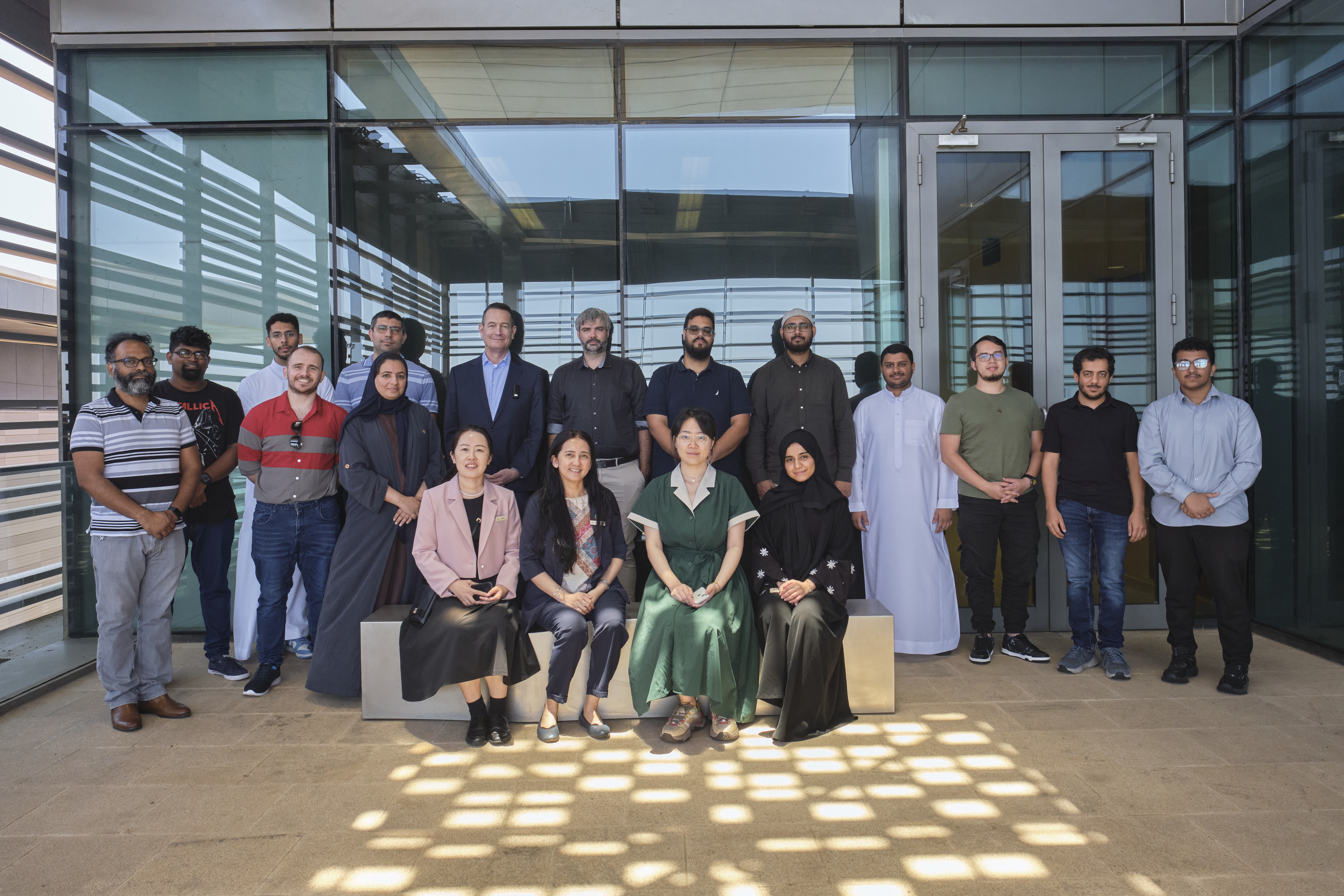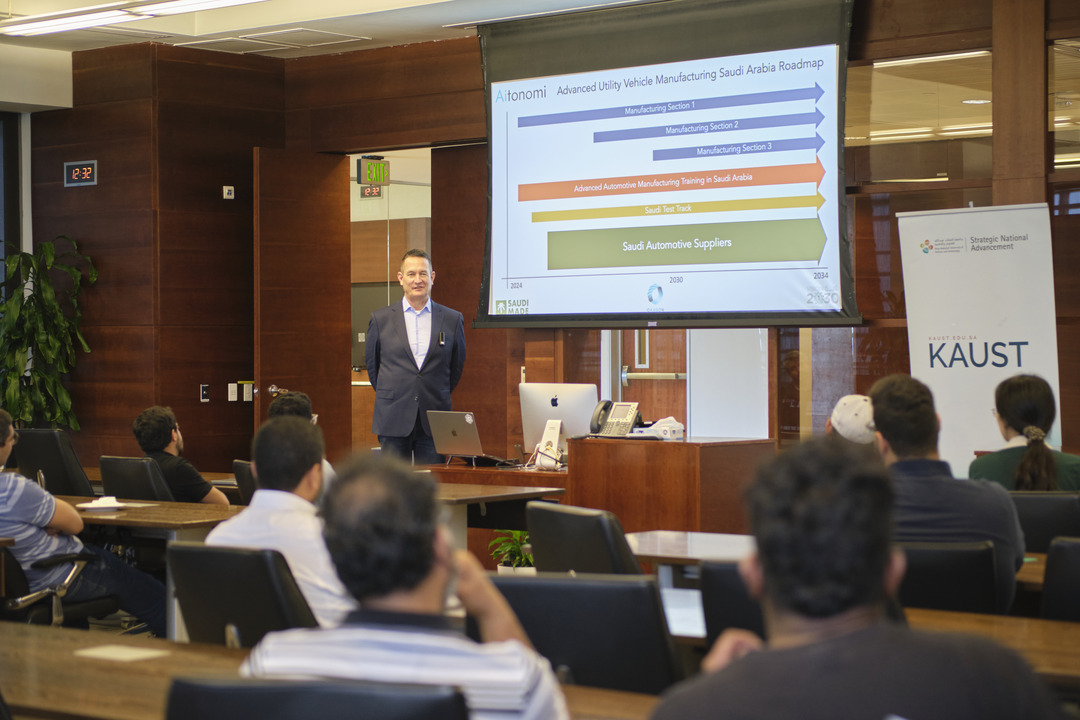KAUST talent to drive autonomous EV transport systems In KSA

Attendees at the KAUST-hosted Aitonomi Company Day event
King Abdullah University of Science and Technology (KAUST) further showcased its commitment to a high-tech, low-carbon future by hosting an impactful Aitonomi Company Day event, spotlighting the pivotal role that KAUST’s pool of global talent can play in driving the Kingdom’s transition to fully autonomous and electric transport systems.
Torsten Scholl, chief executive officer and co-founder of Aitonomi Saudi Arabia LLC, said a combination of applied research and education makes KAUST an ideal recruitment source for his science- and- research-oriented company. “KAUST is one of the best schools in the country, with a strong foundation that supports development not only in AI but also in related fields. This is our first visit, and we are impressed with the potential of talent here.”

Aitonomi Co-Founder and CEO Torsten Scholl, showcasing a roadmap of Aitonomi growth in Saudi at NEOM’s OXAGON sector.
As part of KAUST’s In-Kingdom Career Launch Program (IKCLP), the recent company-day initiative demonstrated the University’s dedication to developing a highly skilled workforce in Saudi Arabia, aligning KAUST’s human-capacity development with the Kingdom’s Vision 2030 aspirations. Along with an informative presentation, Aitonomi personnel interviewed and networked with students.
KAUST@NEOM collaborated with the KAUST National Transformation Institute (NTI) to bring Aitonomi — an Oxagon x McLaren Accelerator business — to KAUST for the event. Dr. Vincent Cunningham, director of KAUST@NEOM, said his office increasingly supports research and services at NEOM by cultivating deeper and more comprehensive partnerships across all domains, including with IKCLP recruitment activities involving KAUST talent.
High-tech background
Founded in 2014 with a focus on its AutoPilot software, Aitonomi AG unveiled its first autonomous delivery robot in 2017. In 2022, it presented one of the world’s largest autonomously driving industrial trucks. The company operates worldwide through a strong partner network and its own subsidiaries, including in Saudi Arabia. According to Scholl, Aitonomi hopes to develop an in-Kingdom manufacturing center.
“We have learned it will be very important for us to set up a college — a training facility — and combine that with manufacturing, therefore enabling the provision of talent for manufacturing,” he said. “In addition, given complications we expect to face related to the climate [in Saudi Arabia], we would also like to have a test track.”
Due to its current levels of National Technology Development Program (NIDP) support, he added, Aitonomi plans to hire up to 12 skilled workers in KSA for 2024. KAUST’s talent pool of graduate students, postdocs and researchers is ideal for both developing artificial intelligence within its transport systems, as well as for the fully electric aspect of the vehicles. This helps the firm, in part, as it strives to maximize the effectiveness of its technology in hotter climates.
Talent informed
Hanan Alharbi, a Saudi first-year computer science master’s student, found Aitonomi’s technology promising and sees potential for rapid growth across KSA, notably in NEOM and other giga-projects. Alharbi’s own AI specialization, coupled with her experience in sensors and microcontrols, aligns well with Aitonomi’s focus. She said that the IKCLP event was an intriguing opportunity to delve deeper into a company she would be interested in joining.
Renston Fernandes, an Indian third-year Ph.D. candidate in KAUST's Clean Combustion Research Center, said the IKCLP gathering provided a dynamic view of fully autonomous electric transport systems and how those can compete against incumbent technologies and energy sources. He found Aitonomi to be a rather compelling organization as well. “In terms of the technical side, I don’t think there’s anyone who has done this so far, and so it’s kind of cool.”

